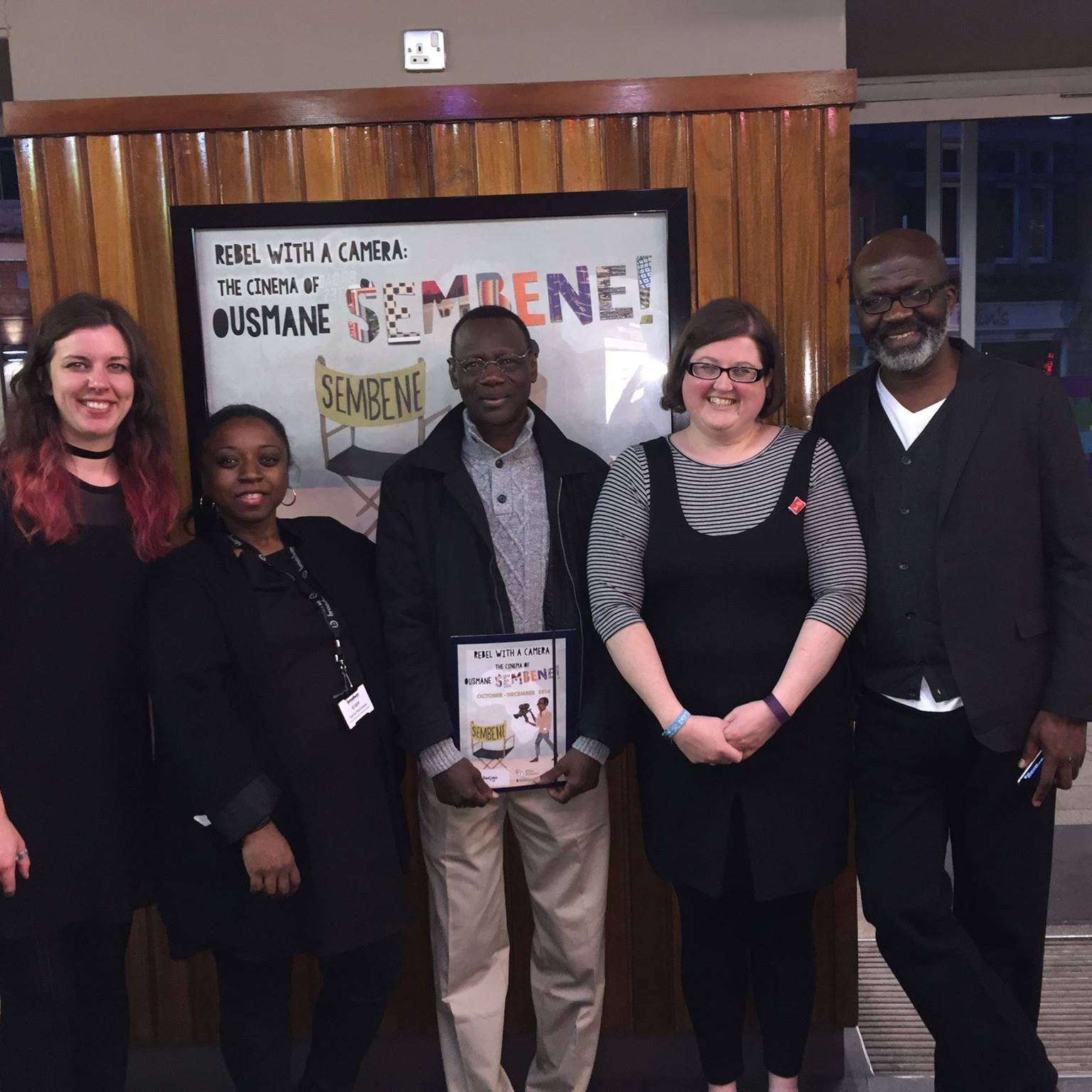
January 9, 2017, by Claire Henson
Showcasing the work of Ousmane Sembène
During Black History Month 2016, The University of Nottingham partnered with the Broadway Cinema to present the works of Ousmane Sembène. Sophia Ramcharan, Audience Development, Diversity and Engagement Co-ordinator at the Broadway Cinema, talks about the programme here.
As we move into 2017, I reflect back to the last season in 2016 of programming here at Broadway, with a particular focus on Black History season. It seems like only a short time ago I was planning last year’s programme of exciting and thought provoking activities to inspire and educate audiences – the year comes around so quickly!
In October we presented the works of the ‘Godfather’ of African cinema, Ousmane Sembène, as part of the ‘A Rebel With A Camera’ season, in association with Aya Distribution, The University of Nottingham as part of their People and Culture programme, and the BFI.
The season started with the new documentary Sembène! (2015) followed by a free seminar with the director Samba Gadjigo and international film curators, Keith Shiri and June Givanni, chaired by Nadia Denton.
In 1952, Ousmane Sembène, a dockworker and fifth-grade dropout from Senegal, began dreaming an impossible dream: to become the storyteller for a new Africa. This feature-length documentary tells the unbelievable true story of the “father of African cinema”, the self-taught novelist and filmmaker who fought, against enormous odds, a monumental, 50-year-long battle to give African stories to Africans. Sembène! is told through the experiences of the man who knew him best, colleague and biographer Samba Gadjigo, using rare archival footage and more than 100 hours of exclusive material. A true-life epic, Sembène! follows an ordinary man who transformed himself into a fearless spokesperson for the marginalised, becoming a hero to millions.
Also included in the programme were three other classic titles directed by Sembene; Black Girl (1966), Xala ( 1974) and Moolaadé (2004). Moolaadé was followed by a Q&A with Kekeli Kpognon, the Diaspora Programme Manager from FORWARD UK (the leading African women led organisation working on the issue of female genital mutilation ( FGM)), Valentine Nkoyo, Director, Mojatu Foundation and Carol McCormick, Specialist FGM Midwife, Nottingham University Hospitals NHS Trust. What followed was an emotionally charged discussion exploring the current situation of FGM in contemporary Britain.
For me, the power of Sembène’s films is that he beautifully balances artistic integrity, which makes his films timeless and iconic, whilst presenting social-political issues; a reflection of his time and space, with relevance to the contemporary world. Ultimately though, the beauty of Sembène is that he is a true and prolific storyteller; his message has transcended audiences of many generations.
No comments yet, fill out a comment to be the first

Leave a Reply